Heal the wounds in others
Heal the wounds in others
Heal the wounds in others
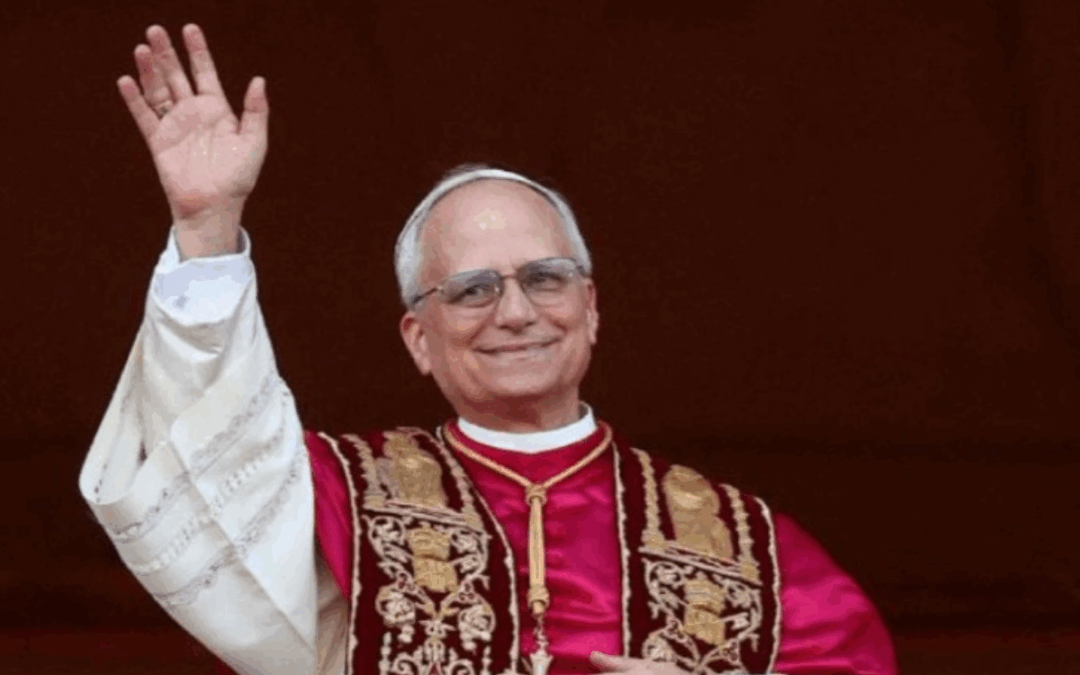
On behalf of the Focolare Movement throughout the world, I express my great joy for the election of Pope Leo XIV as the new Pontiff of the Catholic Church. We thank God for having listened to the prayers of so many people and having, with His Spirit, guided the work of the Cardinals in identifying the successor of Peter at the present time that is posing serious challenges for humanity.
Right From now, we want to assure the Holy Father of our filial closeness, our prayers and our commitment to be peacemakers, as he repeatedly emphasised in his first blessing.
Today the world is in urgent need of peace, light and hope. That is why we promise that we will continue to commit ourselves, together with the ecclesial communities in which we are inserted, to bring God’s love to all; to be open to dialogue, to be ‘one people always at peace’, bearing witness to the fact that the unity asked for by Jesus in his Testament is stronger than any division.
Moreover, we want to commit ourselves to embodying the synodal path ever more faithfully, to be able to apply it also in the various areas of society; to give our contribution so that the Church may be an open and welcoming home for every man and woman and for the new generations, especially for those who are most fragile, those who suffer most and those who are marginalised, so as to offer to all the ever new message of Christ.
Best wishes Pope Leo XIV, with all our love!
Margaret Karram – President of the Focolare Movement
Here I am!

Enable subtitles and select your preferred language.
There is strength in unity!
Get involved and make a difference!
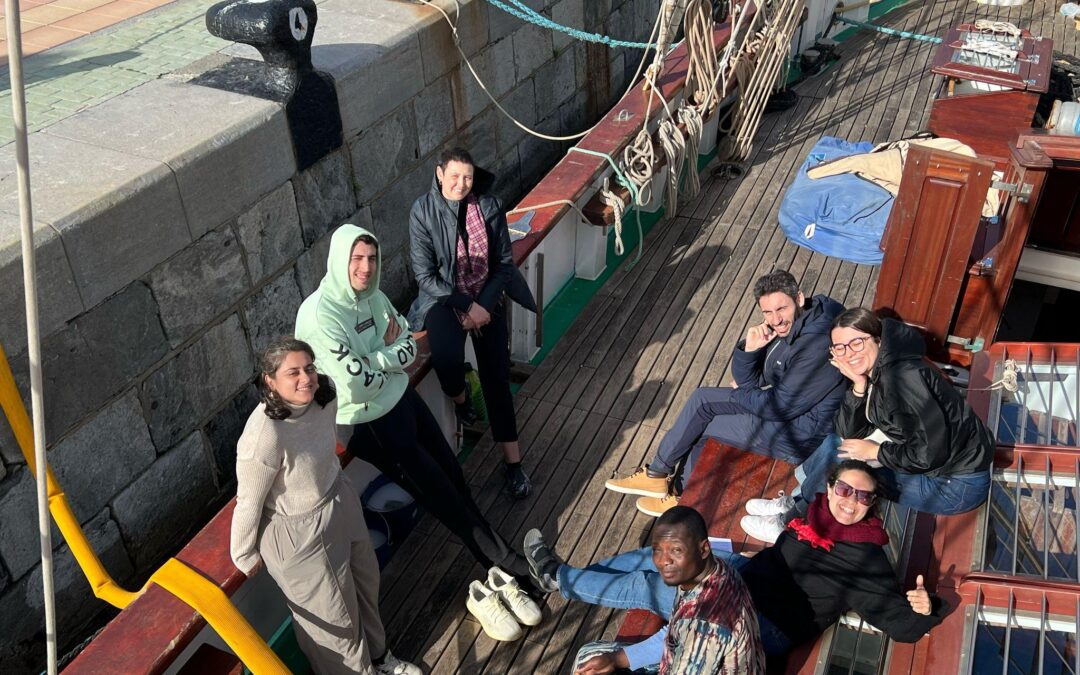
A few weeks ago, I was part of the MED25 project, a school-ship for peace. We were 20 young people from across the Mediterranean—North, South, East, and West—sailing together on a boat called “Bel Espoir.” We set off from Barcelona, and since the weather wasn’t as expected, we stopped in Ibiza before reaching Ceuta. From there, we traveled overland to Tetouan and then returned to Malaga. It wasn’t just a trip—it was a journey into each other’s lives, minds, and cultures.
Living on a boat with so many different people was beautiful, but not always easy. Every day, we had to share responsibilities: cooking, serving meals, cleaning, washing dishes. We rotated tasks in teams, so everyone experienced the full rhythm of life onboard. We also learned how to sail—which was pretty wild at first. I wish I could say it eventually became second nature, but in truth, it was harder than expected. You quickly learn how much teamwork it takes to move forward—literally.
But we weren’t there just to sail and cook. We were there to talk—really talk. We explored eight big topics together: culture, education, the role of women, religion, the environment, migration, Christian traditions, and of course, peace. These weren’t theoretical discussions. They were deeply personal. We shared our perspectives, and sometimes, we clashed. Some discussions got heated. There were moments of frustration. Some conversations even turned into real arguments.
But here’s the truth—on a boat, you can’t just walk away. You can’t go home and sleep it off. You live together. You eat together. You sail together. You are literally in the same boat. And that changes everything. It makes it impossible to stay angry for long. We had to talk it out. We had to listen. And sometimes, we had to admit we were wrong.
That, for me, was the most powerful part of the experience. I realized that most conflicts—between people or nations—don’t come from hatred. They come from ignorance. From stereotypes. From misinformation. And just like we had the chance to truly get to know each other on that boat, the world can do the same. If we could overcome years of misunderstanding in just two weeks together, imagine what could be possible if people were truly willing to listen.
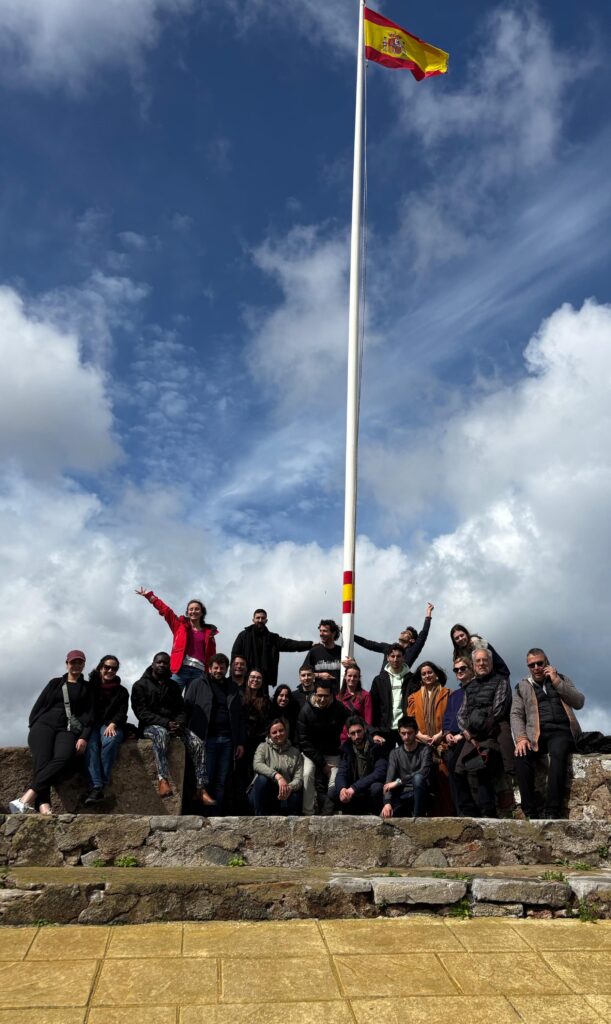
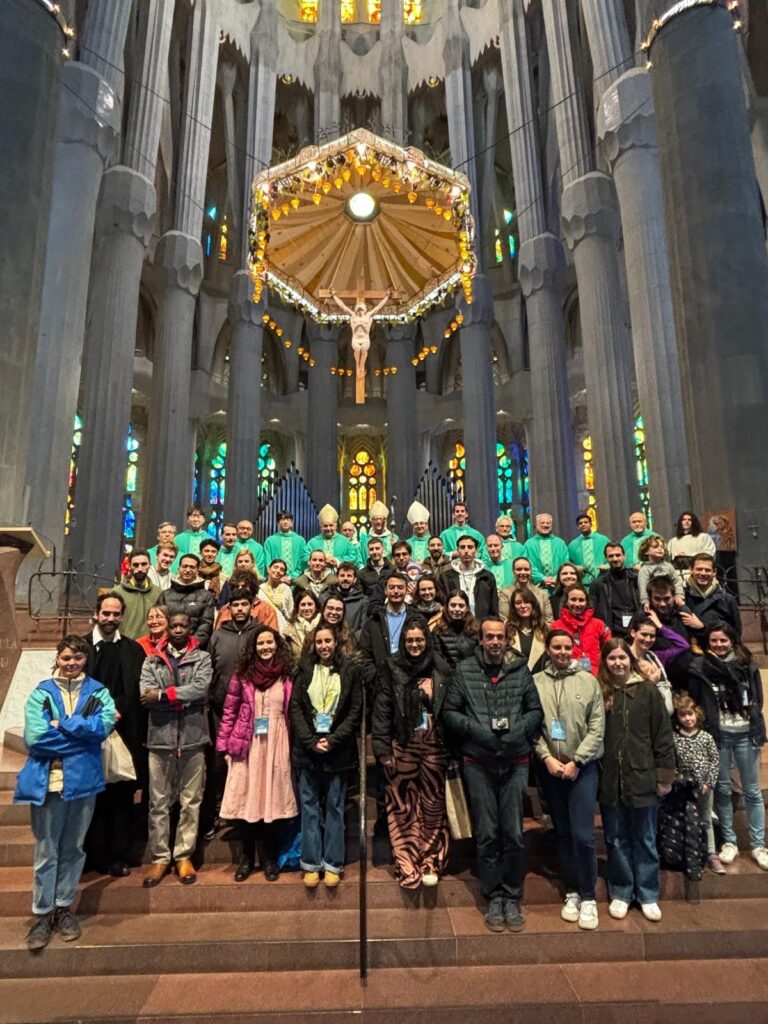
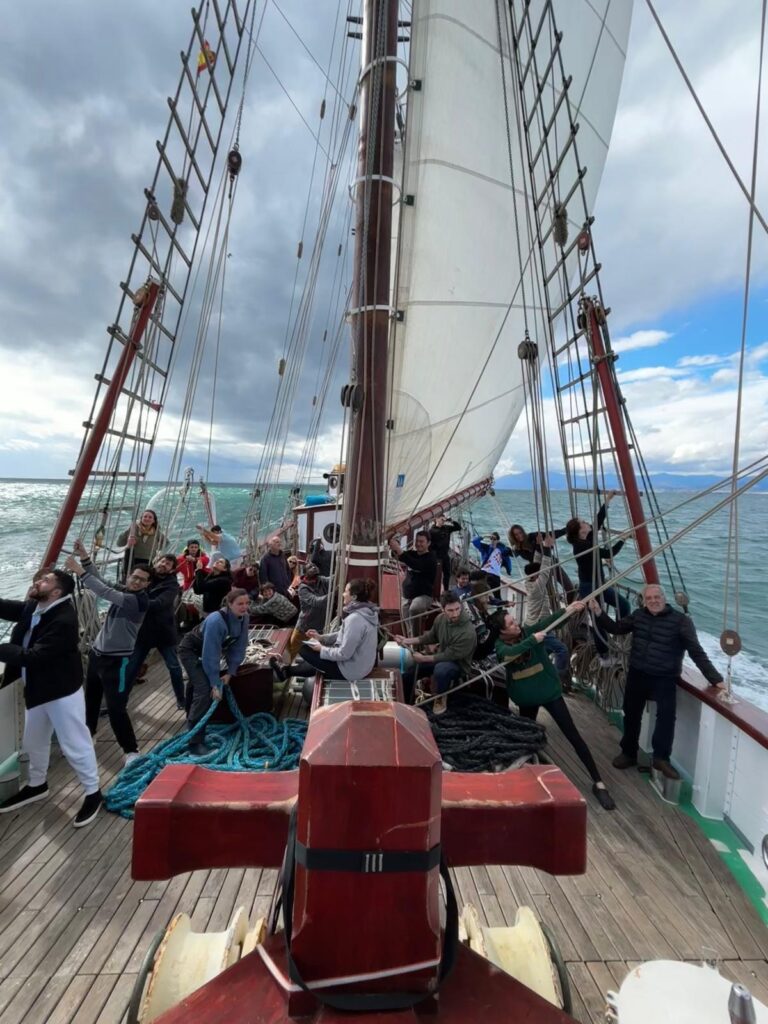
I also discovered many unexpected things. Like how Lent is celebrated differently in Europe compared to the Middle East. Or how religion plays a completely different role in politics and public life depending on where you are. In Europe, it’s often a private matter, whereas in many Middle Eastern countries, it shapes laws, policies, and daily life. These weren’t just facts—I felt the difference through the people I lived with.
What touched me the most was that, despite all our differences, we had so much in common. We laughed a lot. We danced. We got seasick together. We also fasted together, since it was both Lent and Ramadan. We created art, read books, got silly, prayed in many different languages at the same time, discovered religions like Christianity, Islam, Hinduism, and Judaism, slept under the open sky, and shared quiet, sacred moments. And through all that, I realized that peace isn’t something far off or unreachable. It’s deeply human. It’s messy, and it takes work. But it’s possible.
I came back changed. Not because I think we’ve solved all our problems, but because I now believe that peace isn’t a dream—it’s a choice. A choice that starts with truly seeing and listening to the other.
And if 20 strangers could do that together on a boat in the middle of the sea, then there’s hope for the rest of the world too.
Bertha El Hajj, Young Ambassador of Peace
To listen to this experience or others click on
Curated by Maria Grazia Berretta
Listen carefully, speak wisely!
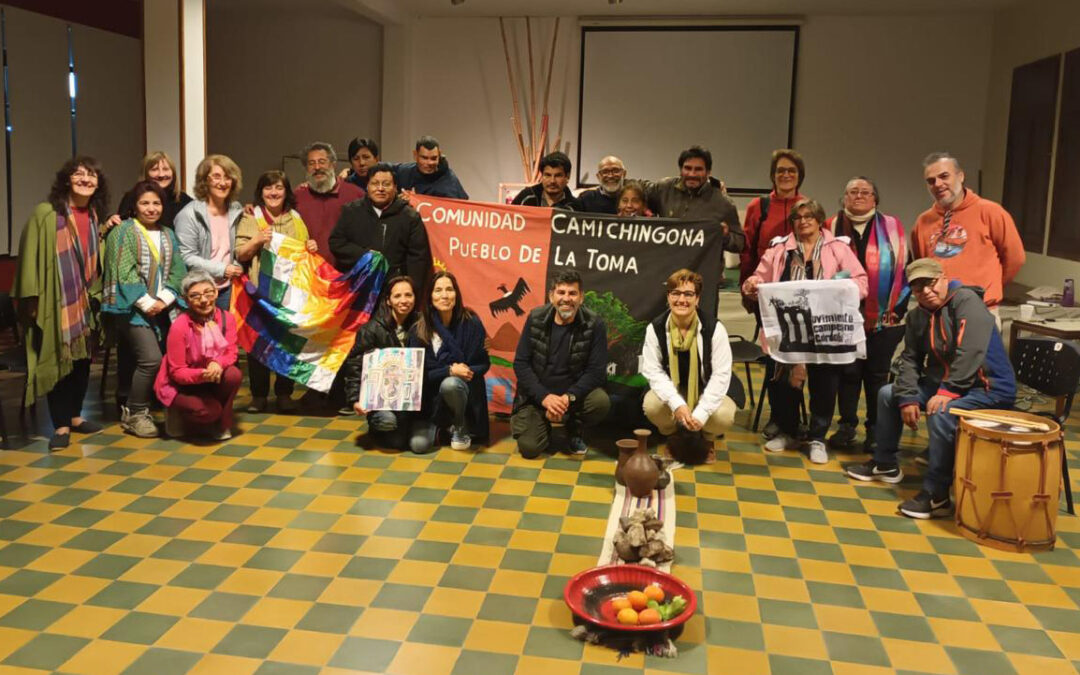
Agustin, Patricia and their two children are an Argentinian family. After following a course at Sophia ALC, the Latin-American branch of the university institute that is based in the international little town of Loppiano (Italy), they began to research their roots among the indigenous peoples, and this gave rise to a strong commitment in intercultural dialogue.
Learning and growing we overcome our limits
Promote peace through sport
Small actions, huge effects!
Welcome differences, seek what unites!

Often life presents us with situations which lead us to slowly and unintentionally close in on ourselves: this may be the result of an disagreement or because of our views or ego or even due toour fears.
But sometimes it is enough to stop and just ask ourselves a simple question, made up of simple words, and, unexpectedly, we become aware that change is possible. The questionis: “Who are you to me?” or, in other words, “Who am I to you?” Questions that, as Margaret Karram says, pave the way to taking concrete action: “take the first step, listen, spare no time, let yourself be ‘wounded’ by others.”[1] It is obvious: if we think about others, we do not think of ourselves, nor of our weaknesses, failures or emotional scars that others have inflicted. Thinking about the other person helps us put ourselves in their shoes, in an attitude of reciprocity: “how would I feel if the other person told me what I am telling him or her?” or “what can I do for him or her?”
lf our actions stem from a desire to put the well-being of those around us first, everything can acquire a greater dimension, to the point where we can tell the other person that we love them gratuitously and without expecting anything in return.
However, sometimes we are overwhelmed by discouragement, frustration, and tiredness. The American doctor, Ira Robert Byock, says that the times of greatest despair arise when we feel imprisoned in “a well of fear, anger and distrust”. [2] In those moments, let us surrender to the power of love that can do anything, can free us from all that holds us back and encourages us to begin again without fear. The music group “Gen Rosso” expresses this idea in one of its songs by saying, “Starting anew is like saying yes to life again, and then breaking free and flying to boundless horizons, where thoughtsare free from fear. Your home becomes as big as the world. To begin again is to believe in love and to feel that even in times of pain, the soul can sing and never stop.”
Such an attitude can bring about personal change, but can also make an impact upon the community when we share our difficulties with other people in sincere and constructive dialogue. An atmosphere of true friendship rebuilds relationships in the community enabling anger to be replaced by reflection, fear by the discovery of new pathways and distrust by hope. We will then become a sign of a different way of creating society.
Sometimes simple words really are enough:
“You matter to me…because you are you!”
Photo: © Pixabay
[1] M. Karram: “Prossimità” – 2024
[2] in: The Economist – The 2015 Quality of Death Index. Ranking palliative care acrosstheworld
THE IDEA OF THE MONTH is currently produced by the Focolare Movement’s “Centre for Dialogue with People of Non religious Beliefs”. It is an initiative that began in 2014 in Uruguay to share with non-believing friends the values of the Word of Life, i.e. the phrase from Scripture that members of the Movement strive to put into practice in their daily lives. Currently, THE IDEA OF THE MONTH is translated into 12 languages and distributed in more than 25 countries, with adaptations of the text according to different cultural sensitivities. dialogue4unity.focolare.org
Peace begins with me!
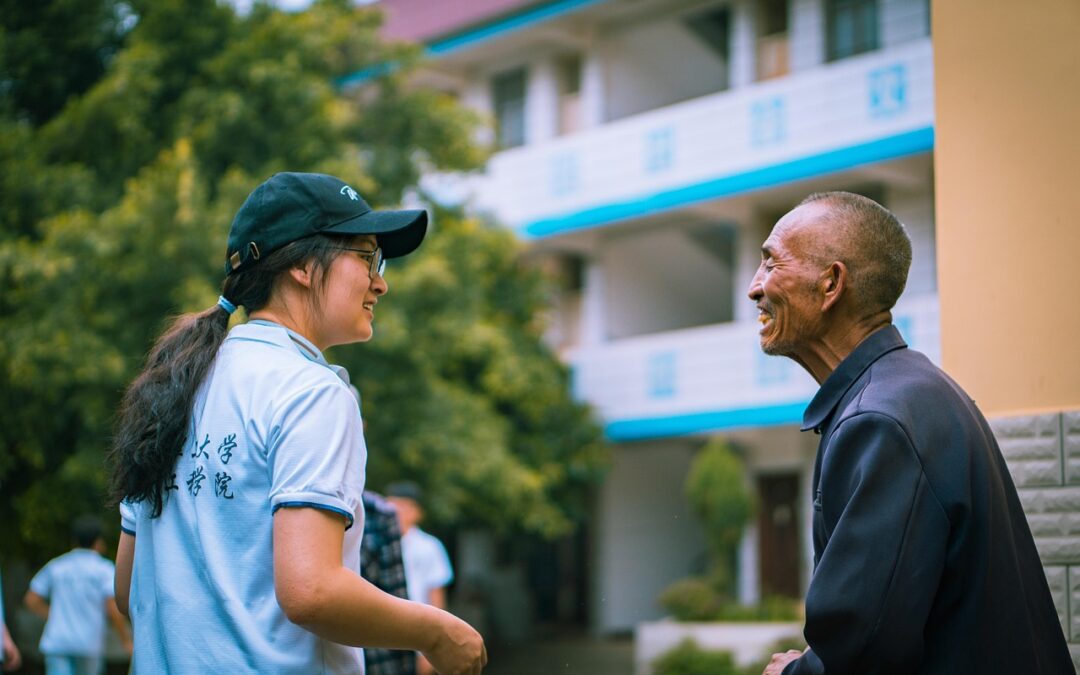
The last chapter of John’s Gospel takes us to Galilee where Peter, John and the other disciples have returned to their work as fishermen. They have spent the entire night on Lake Tiberias but, unfortunately, their efforts have been fruitless.
The Risen Lord appears for the third time and encourages them to cast out their nets once more and this time they gather a large number of fish. The Lord invites them to join him on the shore and to share their food but though Peter and the others have recognized him, they dare not speak to him directly.
Jesus takes the initiative and asks Peter a very challenging question, ‘Simon son of John, do you love me more than these men?’ The tone seems solemn as Jesus continues by asking Peter[1] three timesi to care for his sheep [2]
Lord, you know all things; you know that I love you.
However, Peter knows he has betrayed the Lord, and the memory of this tragic experience prevents him from responding positively to Jesus’ question. He humbly replies, ‘You know that I love you.’
During their conversation, Jesus does not hold the betrayal against Peter; nor does he point out the mistakes he made. He reaches out to him in a way which makes Peter feels at ease and Jesus’ friendship heals his painful wound. The only thing he asks is to rebuild their relationship with an attitude of mutual trust.
Peter responds by showing not only an awareness of his own weakness but also a sense of unlimited trust in the welcoming love of his Master and Lord:
Lord, you know all things; you know that I love you.
Jesus asks each of us the same question: do you love me? Do you want to be my friend?
He knows everything: he knows the gifts we have received from him and he knows our weaknesses and wounds that may still be raw and unhealed within us. Yet he renews his trust, not in our strengths, but in our friendship with him.
This friendship gives Peter the courage to witness to his love for Jesus to the point of giving his life.
‘We all experience moments of weakness, frustration, and discouragement… adversity, painful situations, illness, deaths, inner trials, misunderstandings, temptations and failures… When people feel unable to overcome certain physical or spiritual challenges by relying on their own strength, they are forced into the position of having to trust in God. And he intervenes because he is attracted by this trust. He can achieve great things which seem all the more powerful because they spring from an awareness that we are small and incapable.’ [3]
Everyday we can stand before God just as we are and ask for his healing friendship. In this trusting surrender to his mercy we can return to intimacy with the Lord and resume our journey with him.
Lord, you know all things; you know that I love you.
This word of life can also become a personal prayer as we acknowledge the limits of our strength but place our trust in God and thank him for all the signs of his love:
‘I love you because you have entered my life more than the air in my lungs, more than the blood in my veins. You entered where no one could enter, when no one could help me, when no one could comfort me… Enable me to be grateful to you – at least a little – in the time I have left, for this love that you poured out on me, and forced me to say to you: I love you.’ [4]
We can follow Jesus’ style of loving in our relationships in the family, society and the Church. Jesus loved everyone, he was the first to love and he ‘washed the feet’ [5] of our brothers and sisters, especially the least and most fragile. By doing this, we will learn to welcome everyone with humility and patience, without judging, open to asking and accepting forgiveness and understanding together how to walk side by side through life.
Edited by Letizia Magri & the Word of Life Team
©Photo: Canva
[1] Cf. Mt 16,18-19.
[2] Gv 10,14.
[3] C. Lubich, Word of Life, July 2000
[4] Gratitudine’ Dottrina Spirituali, 2001
[5] Cf. Gv 13,14.
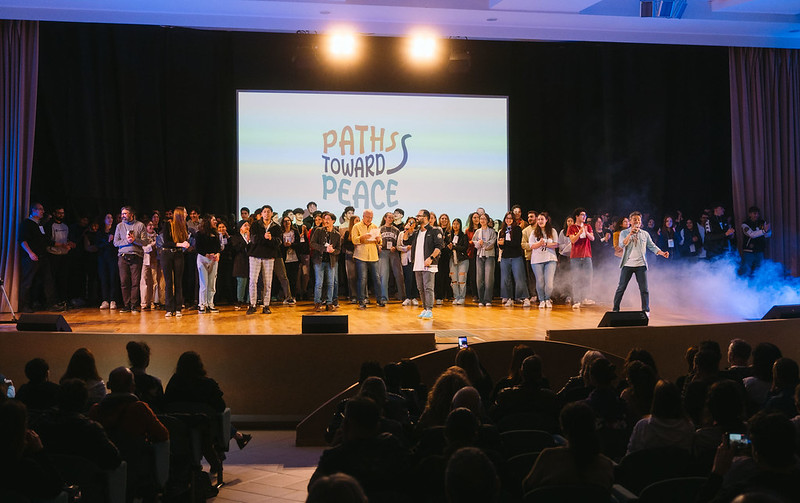
The 2025 edition of the traditional youth festival in the Focolare little town will showcase the fragility and conflicts experienced by young people today and transform them into an immersive artistic experience full of hope. There will be many workshops and a live final show to tell everyone: ‘You are born to bloom’.
‘Remember that you were born to bloom, to be happy’. This is the message that, in the Jubilee Year of Hope, the young organisers of May Day in Loppiano (Figline and Incisa Valdarno – Florence) want to give to their peers who will participate in the 2025 edition of the traditional festival that has been held since 1973 in the international town of the Focolare Movement on Labour Day.
The theme
At the heart of ‘You are born to bloom, the courage to flourish’, the title of the event, are the fragility, wounds and conflicts experienced by today’s children and young people, sublimated into an artistic, immersive and growth-oriented experience.
‘We believe that the conflict we often experience in the most difficult stages of life can become an opportunity to be reborn stronger and more aware of who we are,’ explain Emily Zeidan, from Syria, and Marco D’Ercole, from Italy, members of the international team of young organisers of the festival. As Pope Francis told us, ‘Conflict is like a labyrinth’, we must not be afraid to go through it, because ‘conflicts make us grow’. But ‘you cannot get out of the labyrinth alone; you get out with someone else who helps you’. So, on May Day in Loppiano, we want to remind everyone of the beauty of each other, even in moments of vulnerability.
The theme of May Day in Loppiano is highly topical, considering that in Italy, one in five minors suffers from a mental disorder (depression, social withdrawal, school refusal, self-harm, anxiety, eating disorders, suicidal tendencies), according to data from the Italian Society of Child and Adolescent Neuropsychiatry. Those under 35, on the other hand, experience job insecurity, are underpaid, suffer from territorial and gender inequality (‘Youth 2024: the balance sheet of a generation’, EURES), and do not feel understood by adults in their needs and experiences, particularly when it comes to fears and fragility, aspirations and dreams.
Pope Francis had great faith in us young people. He never missed an opportunity to remind us that the world needs us, our dreams, and great horizons to look towards together, in order to ‘lay the foundations of social solidarity and a culture of encounter,’ emphasise Emily and Marco. For this reason, ‘You are Born to Bloom’ will be a show created together, where the audience will not only be spectators but an integral part of the international town of the Focolare Movement. Narration: everyone who participates will be called upon to become a protagonist of the show, giving their best with others.
The programme
In the morning, participants in the May Day festival in Loppiano will have the opportunity to explore their own fragility and beauty through art, motivational and experiential workshops led by psychologists, trainers, counsellors, artists and performers.
Among these, the Gen Verde International Performing Arts Group will prepare young people to take to the stage and be part of the cast of choreographies, choirs, theatre company and band in the final show. The Gen Verde workshops are part of the project ‘M.E.D.I.T.erraNEW: Mediation, Emotions, Dialogue, Interculturality, Talents to foster youth social inclusion in the Mare Nostrum’, Erasmus Plus – Youth – cooperation partnership.
The festival will culminate in the afternoon with the collective creation of a live performance: all participants will be an active part of the story, and there will be no distance between the stage and the audience.
Among the artists who have confirmed their participation are Martinico and the band As One.
‘You are born to bloom, the courage to flourish’ is made possible thanks to the contribution of Fondazione CR Firenze.
Loppiano’s May Day is an event of the 2025 United World Week (1-7 May 2025), a global workshop and expo to raise awareness of fraternity and peace.
For information and reservations, please contact: primomaggio@loppiano.it +39 055 9051102 www.primomaggioloppiano.it
Tamara Pastorelli
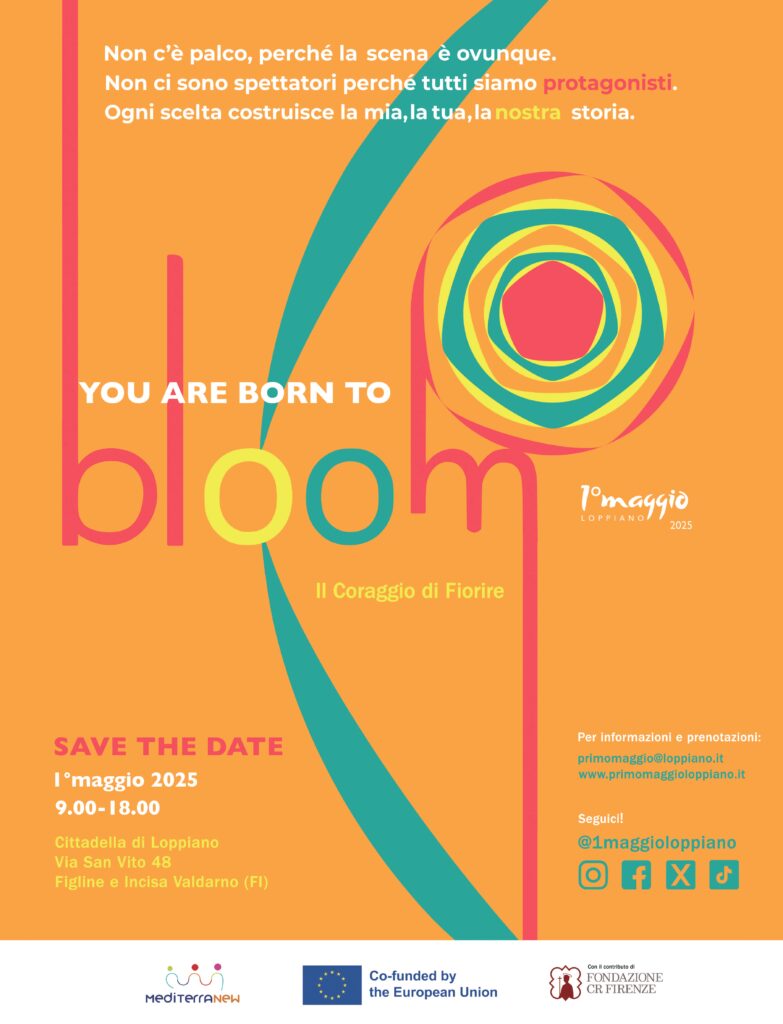
Love makes us free
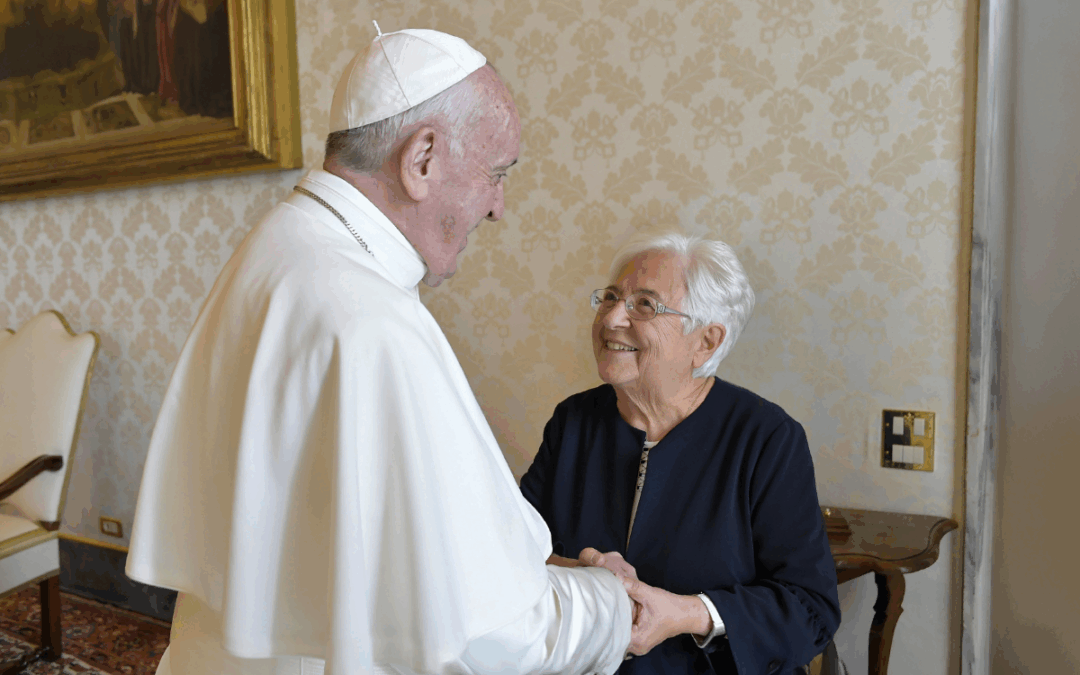
A path of dialogue and welcome rooted in the Gospel is the one shared by Pope Francis with the Focolare Movement. Maria Voce Emmaus, who was President of the Movement during the first eight years of his pontificate, describes it.
Enable subtitles and select your preferred language.
Photo © Vatican Media
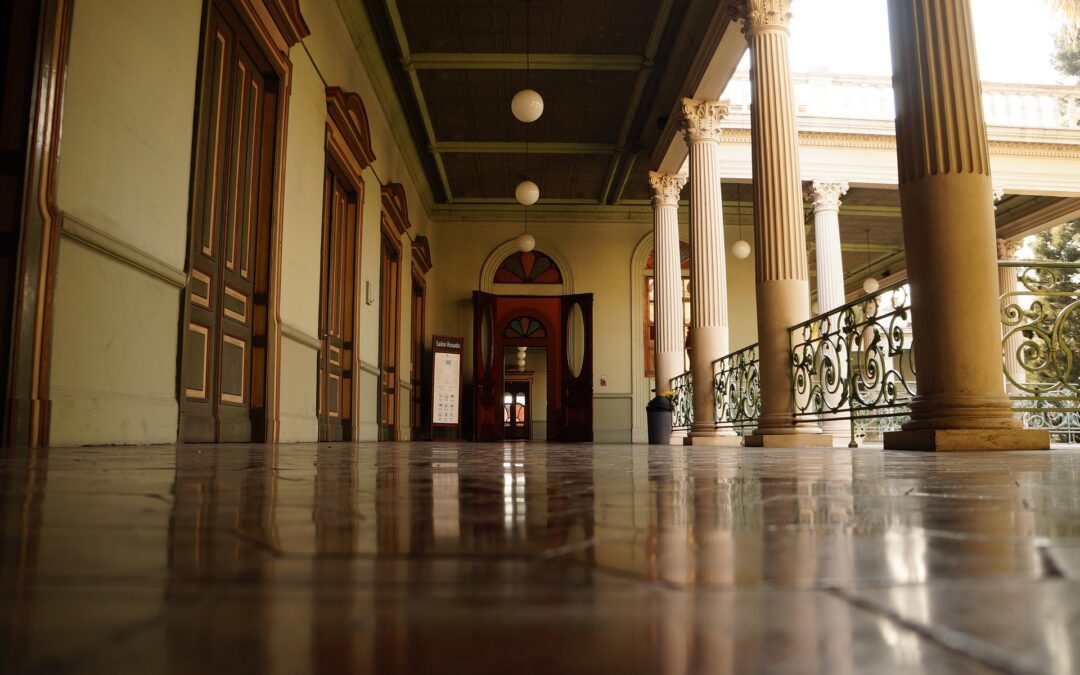
Accepting change
As a “distributor of tasks”, over ten years I had managed, in collaboration with our parish priest, to form the Parish Pastoral Council and the Sacristan group. As time went on, I realized my role was shrinking. Many people, previously less active, came forward to carry out various tasks and I chose to step aside to leave them space. Initially, I accepted my reduced role with serenity. Later, however, feeling excluded, I understood how easy it is to become attached to a role, but also how important it is to know when to let go. Sometimes, the Lord invites us to take a step back to prepare us for something new. It’s not easy, because it means accepting change and trusting. Today, although I feel a little on the side-lines, I remain willing to make my contribution if and when I am asked. I am convinced that every service, even the smallest, has a value and that every phase of life is an opportunity to grow in faith and love for others.
(Luciana – Italy)
God sees me
When I lived in Brussels, I sometimes went to Mass in the church of St. Michel’s College. To get there, you had to walk along long corridors with an endless series of classrooms on either side. Above the door of each one, there was a sign that read: God sees you. It was a warning to the boys that reflected a message from the past, expressed negatively: “Do not sin because, even if other people do not see you, God sees you”. Instead, for me, perhaps because I was born in another era or because I believe in his love, it resonated positively: “I do not have to do good things in front of men so that they see me, or to be praised or thanked, but live in the presence of God”. In the Gospel of Matthew 23: 1-12 speaking to scribes and Pharisees who love to show themselves off, Jesus invited them not to be called “teachers” but to have only one concern: to act under the gaze of God who reads hearts. I like this: God sees me, as the signs in the boarding school said; God reads our hearts and that must be enough for me.
(G.F.- Belgium)
The first step
My mother and her sister had fallen out over a matter of inheritance. They hadn’t seen each other for a long time and the rift grew wider, especially since we lived in the city and my aunt in a remote mountain village. This state of affairs lasted until the day, stimulated by the Words of Jesus: “If you are about to present your offering at the altar, and there you remember that your brother has something against you, leave your offering there before the altar and go first to be reconciled with your brother; then return and present your offering”, I plucked up my courage. I sought the right moment and then broached the subject with my mother. I managed to convince her to accompany me to visit my aunt. During the trip we kept quite silent so all I did was pray for everything to go well. In fact, things took place in the simplest way: taken by surprise, my aunt welcomed us with open arms. But we had to take the first step.
(A.G. – Italy)
Curated by Maria Grazia Berretta
(taken from The Gospel of the Day, Città Nuova, year X– no.1 March-April 2025)
©Photo: Gerson Rodriguez – Pixabay
Listen to the inner voice
Aim high!
Be merciful

A Pope who dreamed and made us dream… what was his dream? He once said it himself, that “the Church is the Gospel”. Not in the sense that the Gospel is the exclusive property of the Church. But in the sense that Jesus of Nazareth, the one who was crucified outside the walls as if he were a criminal and instead whom God Abbà raised from the dead as the first-born Son among many brothers and sisters, he continues here and now, through those who recognise themselves in his name, to bring the good news that the Kingdom of God has come and is coming… for everyone, starting with the “least” who have been touched by the Gospel for who they are in the eyes of God, the “first ones”. This is true and not a figure of speech. This is the Gospel, that the Church proclaims and contributes to making history. This is so, the more it is transformed by the Gospel. As it happened, from the very beginning, to Peter and John when, on their way up to the temple, they met the man who was crippled from birth at the entrance called the “Beautiful Gate”. Together they looked straight at him, and he in turn looked them in the eye. And Peter said to him: “I have neither silver nor gold, but I will give you what I have: in the name of Jesus Christ the Nazarene, walk!”
The Gospel of Jesus and the mission of the Church. Make the effort to stand up and walk. This is how the Father thinks of us, wants us and accompanies us. Jorge Maria Bergoglio – with all the strength and the frailty of his humanity, which made us feel that he was like our brother – it is for this that he has spent his life and his service as Bishop of Rome. From that first appearance from the balcony of St. Peter’s, when he bowed and asked for the People of God to invoke a blessing for him, to the last appearance, on Easter Sunday, when in a faint voice he gave the blessing of the risen Christ, then went down into the square to meet the eyes of the people. His dream was that of a Church which is “poor and of the poor”. In the spirit of Vatican II, which called the Church back to its only model, Jesus: who “stripped himself, making himself a servant”.
The name, Francis that he chose expresses the soul of what he wanted to do, and, first of all, to be: a witness to the Gospel “sine glossa”, that is, without comment and without adaptation. Because the Gospel is neither an ornament, nor a filler, nor an anaesthetic: it is a proclamation of truth and of life, of joy, of justice, of peace and fraternity. So, there we have the Church’s reform programme in Evangelii gaudium, and the manifestos of a new planetary humanism in Laudato sì and Fratelli tutti. We have the Jubilee of Mercy and the Jubilee of Hope. We have the document on universal fraternity signed in Abu Dhabi with the great Iman of Al Ahzar, and there we have the countless occasions of encounter experienced with members of different faiths and convictions. There we have the tireless work in defence of the abandoned, the migrants, the people who are abused. There we have the categorical rejection of war.
Francis was very clear that it is not enough for the Gospel to speak, with all its subversive force, in the complex and even contradictory Areopagus of our time. Something more is needed: because we are not only in an epoch of changes, but we are in the midst of a change of epoch. We need to look with a new perspective. The one with which Jesus looked and looks at us, from the Father. The gaze that, with tender and heartfelt words, is described in his spiritual and theological testament, the encyclical Dilexit nos. It is the simple and radical outlook of loving one’s neighbour as oneself and of loving one another in a selfless, free, hospitable reciprocity, open to everyone, everyone, everyone. The synodal process in which the Catholic Church – and, for their part, all the other Churches – has been convened shows the path to take in this third millennium of ours: beyond a clerical, hierarchical, male-dominated Church… A new path because it is as old as the Gospel. A difficult path, costly and full of obstacles. But a great prophecy, entrusted to our creative and tenacious responsibility.
Thank you, Francis! Your body will now rest beside Mary, who accompanied you step by step, as a mother, on your holy journey. With her, you now accompany all of us, from the womb of God, on the journey that awaits us.
Piero Coda
Photo: © CSC Audiovisivi
Heralds of hope!

It is with deep emotion that I write these lines about Pope Francis after his “flight” to the Father. I recall those many thoughtful and meaningful moments, when I was able to shake his hand and feel the warmth of his smile, the tenderness of his gaze, the strength of his words, the beating of his heart ready for a fatherly welcome. And I find it hard to believe that these encounters will no longer have a “tomorrow” or an “again” in my life.
I do not propose to make a thematic summary of Francis’ pontificate. To this end, it will be enough to review the many articles that have been published in recent days, especially the special issue of L’Osservatore Romano – just a few hours after his death – and the more or less exhaustive evaluations that will surely be published in the near future.
What moves me from within is to find that the golden thread that weaves his mission in guiding the Church, to try to be in tune with the centre of his heart and soul. And, from there, to relive the relationship he had with the Work of Mary during these twelve years.
To do this, I meditated deeply on his most recent talks, because I feel that this is where Pope Francis gave the best of himself and where you can find the key to all his thinking and to all his actions.
In the text he prepared for the Easter Mass, there is a quote from the great French theologian Henri de Lubac, who is also a Jesuit, that cannot simply be rhetorical: “it should be enough to understand this: Christianity is Christ. No, truly, there is nothing else but this.”
In my opinion, if we want to understand Francis, we must refer to this absolute: Christ, and only Christ, all Christ. From this we can understand the profound content of his encyclicals and apostolic exhortations, the choice of his journeys, his preferred options, the meaning of the reforms he undertook, his gestures, his words, his homilies, his meetings, and above all his love for those who are excluded, for those who are rejected, for women, for the elderly, for children and for creation.
‘No, there really is nothing else’. That is why one can say – using a pleonasm – that the Catholicism of Pope Francis is simply a “Christian Catholicism”. The new impulse he wanted to give the Church is based on this approach: the transparency of Christ. Because of this, on many occasions he has gone far beyond the politically correct, or rather, the ecclesially correct, without fear of being misunderstood, and without fear of being wrong, even aware of his “contradictions”. In fact, in an interview with a Spanish newspaper he said that what he wished for his successor was not to make his same mistakes.
Because of this Christological centrality, we can acknowledge that we have indeed been living – almost without realising it – with a Pope who is profoundly mystical. After all, this is how Pope Francis has thought and lived the Church: not as a religious organisation, nor as a distributor of sacraments, much less as a centre of economic, social or political power, but as the people of God, the body of Christ, which gives hospitality to humanity in His humanity. A Church, therefore, that is open to humanity, to service, because Jesus is “the heart of the world”.
To reduce Francis to a social reformer or a Pope of disruption shows a tremendous blindness. I often stared at his face when he inserted comments in his messages, for example at the Sunday Angelus. There, with the simplicity of a shepherd who passionately loves his flock, he displayed his harmony with the divine, his wisdom, his crystal-clear and straightforward faith, his profound humility.
In my humble opinion, from the centrality of Christ derive the two fundamental pillars of his magisterium: mercy and hope. Mercy is the expression of knowing ourselves as believers rooted in history, both personal and collective, with all its tragedies; hope manifests the eschatological and salvific tension that determines it. According to the Pope’s thought, there is mercy because there is hope; and it is hope that gives us a heart of mercy. Indeed, in his homily prepared for this year’s Easter Vigil, Francis affirms that ‘the Risen Christ is the definitive turning point in human history’. The important social and ecological messages of Pope Francis are misunderstood if this eschatological tension centred on the Risen Lord is not taken into account.
Francis’ relationship with the Focolare Movement has been very deep during the twelve years of his pontificate. He addressed ten official speeches to it: to the participants at the 2014 and 2021 Assemblies; to all those belonging to the Movement on the occasion of the 80th anniversary of its birth; to the academic community of the Sophia University Institute; to the family focolares; to the participants at the meeting of the bishops of various Churches; to the participants at the meeting on the “economy of communion”; to the participants at the interreligious conference “One Human Family”; to the citizens of the little town of Loppiano; to the Mariapolis of Rome – Earth Village. Furthermore, on one occasion, he granted a private audience to Maria Voce, the first president of the Work of Mary after Chiara, and to myself.
What emerges from these meetings is a great love and a touching pastoral concern of Pope Francis for the Movement. In the virtual ecclesial circularity between hierarchical and charismatic gifts, we can affirm that, on the one hand, the Pope has been able to grasp, value and highlight the gift that the charism of unity, with its emphasis on the spirituality of communion and its concrete achievements in very different ecclesial and civic contexts, represents for the synodal process that the whole Church is living in view of a new evangelisation. On the other hand, he has identified with extreme clarity the challenges and steps that the movement must necessarily take if it wants to remain faithful to its original charism, knowing how to go through the inevitable post-foundation crisis in a humble way, transforming it into a time of grace and new opportunities.
Pope Francis has been for the world an all-encompassing message of fraternity rooted in Christ and open to all. Fraternity is the only future that is possible. We, the people of unity, must treasure this legacy with humility, energy and responsibility.
Jesús Morán
Photo © Vatican Media
Be instruments of love and joy!
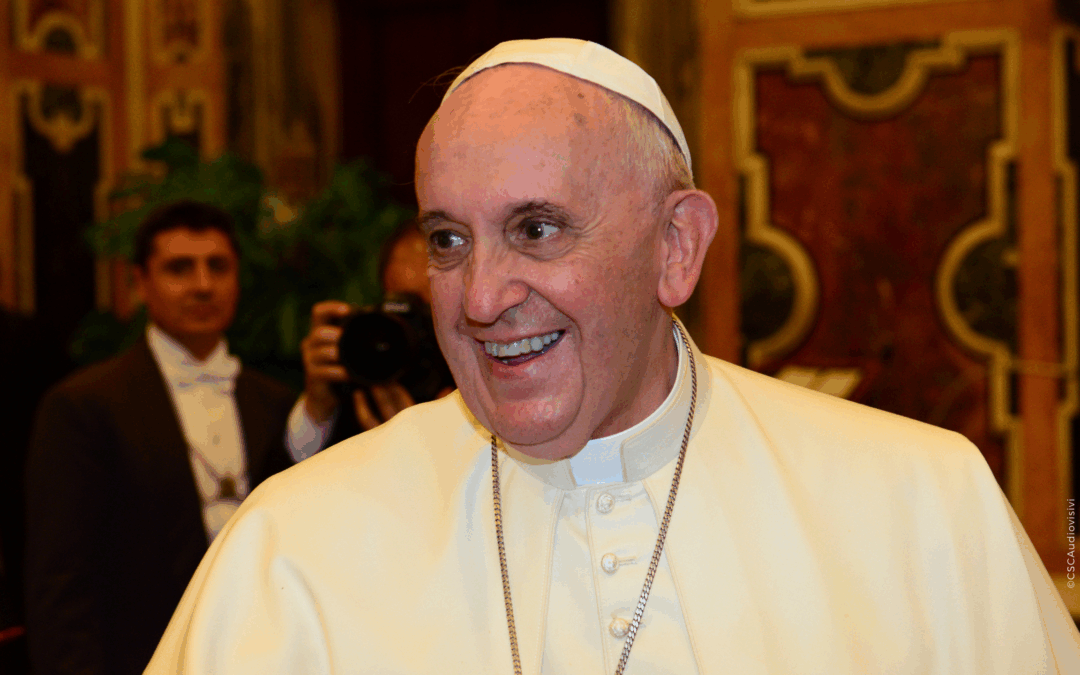
Enable subtitles and select your preferred language.
Bring peace
Instill hope
Testify to love
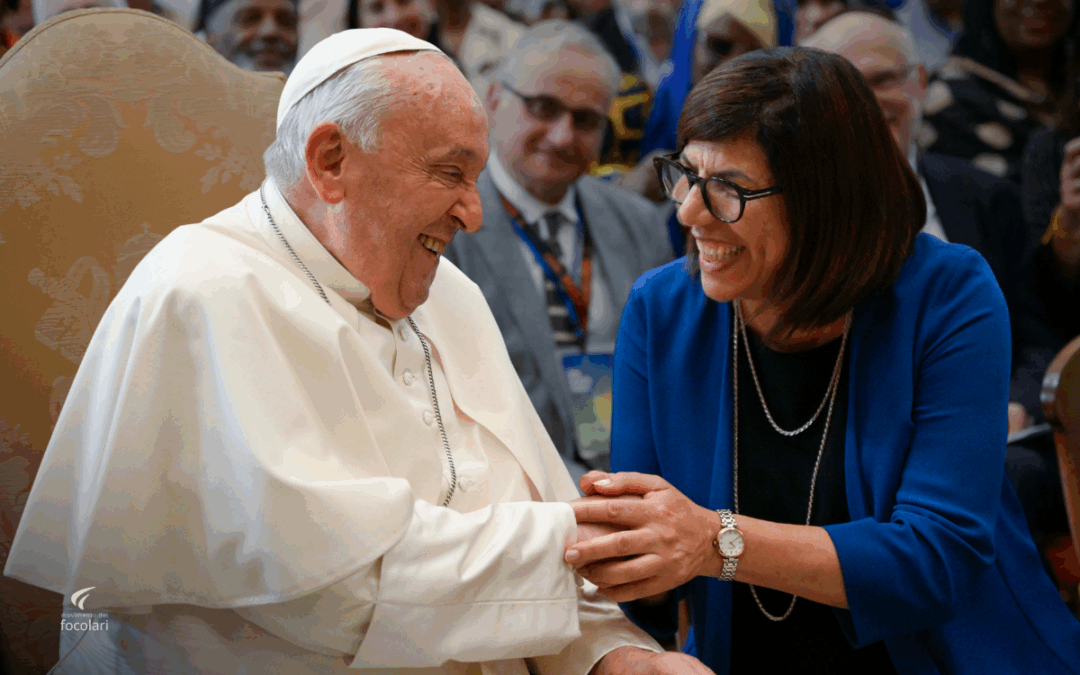
It was with deep sorrow that I learned of the return to the house of the Father of our beloved Pope Francis. Together with the whole Church, we give him back to God, filled with gratitude for the extraordinary example and gift of love that he has been for every person and every people.
There have been many moments, throughout his entire pontificate, in which the Holy Father has been a close and loving shepherd also for the Focolare Movement. He has always welcomed us and has guided us to witness to the Gospel with courage and in a radical way.
We have lived many moments with him, which we will never forget In one of them we remember his words to the General Assembly of the Focolare, when he received us in audience in 2021:
‘Always listen to Christ’s cry of abandonment on the cross, which manifests the highest measure of love. The grace that comes from this, is capable of inspiring in us, who are weak and sinners, generous and sometimes heroic responses. It is capable of transforming suffering and even tragedy into a source of light and hope for humanity’.
Finally, I cannot fail to testify also to the Pope’s love and personal concern for me, for the sufferings of my people in the Holy Land, and my immense gratitude for having invited me to participate in the Synod on Synodality, where he himself opened the doors of the Synodal Church that is now starting to take its steps throughout the world.
Together with the entire Focolare Movement in the world, I unite myself to the prayer of the universal Church and of all men and women of good will, certain that Our Lady ‘Salus Populi Romani’, (Mary, Health of the Roman People) to whom he was so devoted, will welcome him into heaven with open arms.
Margaret Karram
Communicate God’s sweetness
The fullness of joy!
Be silent before each neighbour

Enable subtitles and select your preferred language.
Photo @ Pixabay
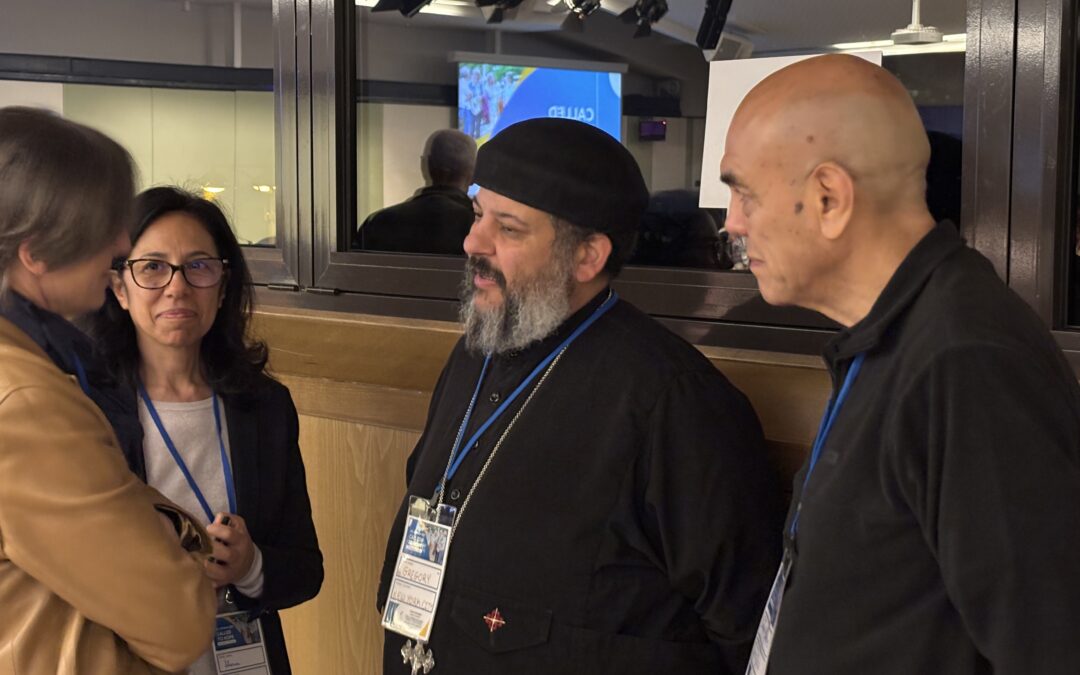
An Easter of hope but above all, an Easter to be lived together. In this year 2025, which marks 1,700 years since the Council of Nicaea, Christian Churches will celebrate Easter on the same day: Sunday, 20th April.
This is a wonderful coincidence that calls all Christians to take a decisive step toward unity—a call to rediscover ourselves as united in plurality.
In an age marked by divisions on every front and especially at this time that brings us closer to the mystery of the Resurrection, we would like to share what Chiara Lubich said in Palermo in 1998 about “A Spirituality for Dialogues”, specifically an “ecumenical spirituality.”
It is a direct invitation to respond to the call of mutual love, not as individuals, but together. It is an opportunity to look upon the Jesus Forsaken on the cross as a light which, even in the ultimate sacrifice, not only leads us but becomes the sure pathway along which we can take our steps.
Enable subtitles and select your preferred language.
Photo: © Carlos Mana – CSC audiovisivi
Welcome everyone
Carry out acts of service
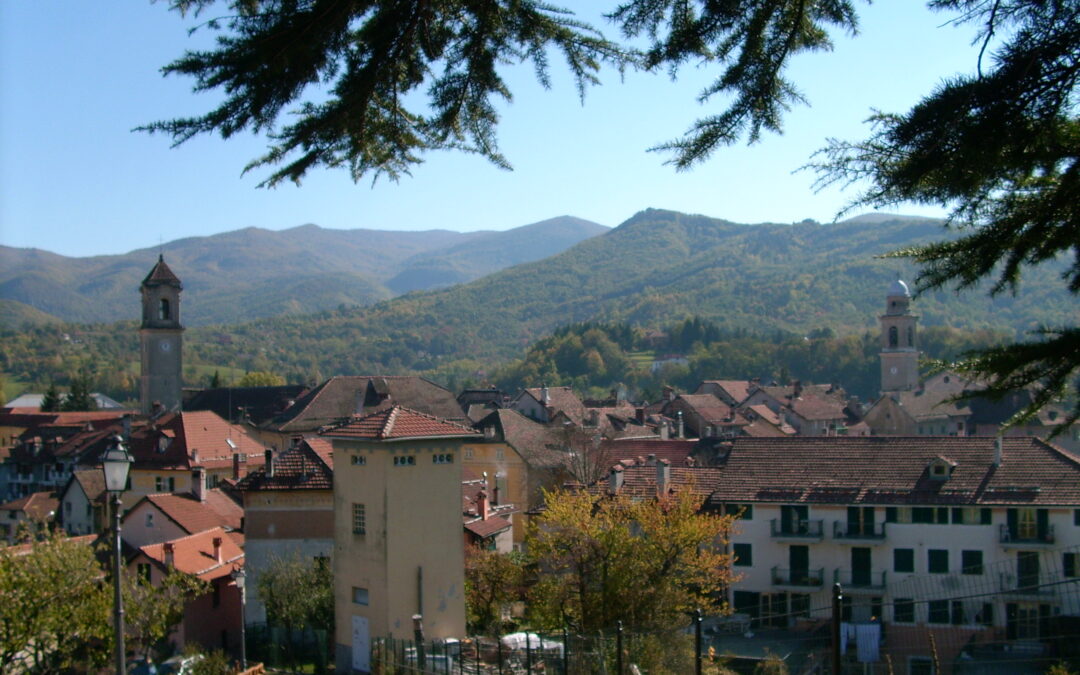
According to the calendar of major events for the Jubilee of Hope 2025, the Jubilee for Families, Children, Grandparents and the Elderly will take place from 30th May- 1st June and the Jubilee for Young People will take place from 28th July-3rd August. These will be two major events that will bring thousands of people from all over the world to Rome.
For the occasion, the Focolare Movement is offering several itineraries to provide opportunities to get to know more about the spirituality of unity and the lives of some witnesses of hope. In particular, a multi-stop tour for young people has been created around Italy entitled Youth and Holiness. We interviewed Paola Torelli and Lais Alexandre Pessoa from the Movement’s Youth Centres to find out more.
Let’s start with the Youth Jubilee: where did the idea of the “Young People and Holiness” tour come from?
The Youth Jubilee is a unique opportunity to set out on a journey, both physically in Rome and in other jubilee locations around the world. This journey is not just about visiting places, but above all it is an experience of encounter with God and with many witnesses of hope, whose lives can help us grow in faith and hope. Hence the idea of Young People and Holiness, a journey in the company of some witnesses of hope, for all the young people participating in the Jubilee at the end of July.
What is the Focolare Movement offering?
Several stops around Italy are planned:
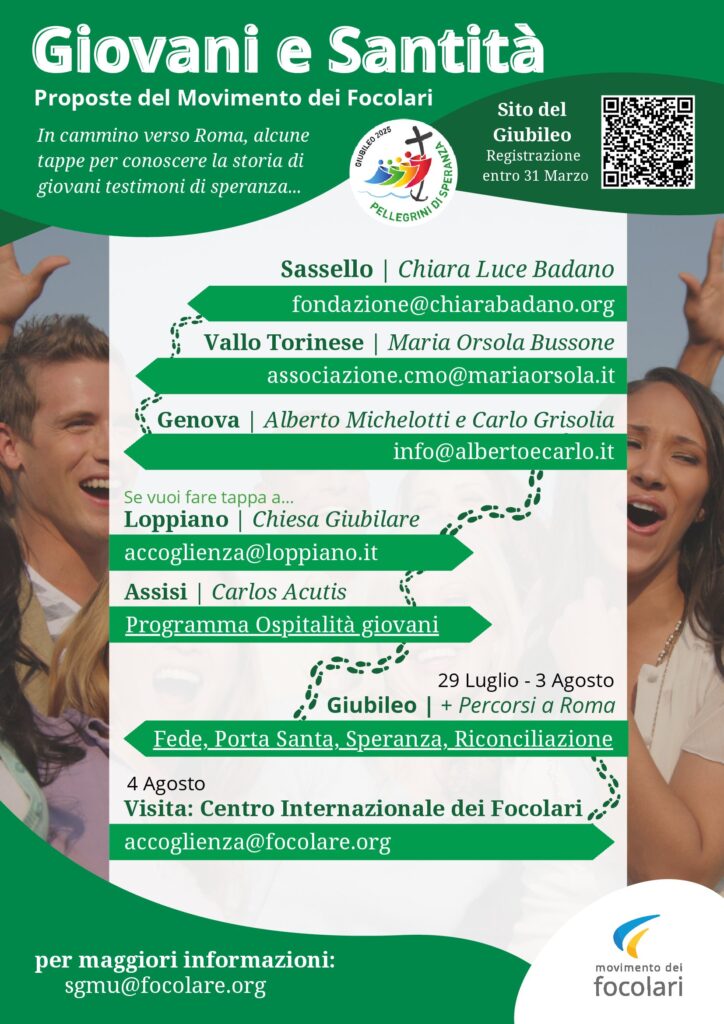
Can you choose only one stage or is it one complete journey that includes all the stops?
The proposed stages are independent, each group or person can choose which ones to participate in or, if possible, follow the entire route. Contact details are provided for each stop regarding programs and visits.
Are there any other initiatives for young people?
Every month, at the Focolare Meeting Point in Rome there is a gathering entitled Call to one hope – Young people on the Journey. Together with some other Movements and Associations, we offer a chance to nurture and strengthen “hope” through shared testimonies, reflection, silence, and prayer. It’s an experience of mutual discovery. Preparing these events together with the other Movements and Associations helps us grow and become ever more the Church.
Let’s move on now to the Jubilee for Families, Children, Grandparents and the Elderly at the end of May: what does Focolare propose?
There will be two events on Friday, 30th May. They are interactive routes to deepen the Jubilee of Hope, designed for families with children and young people up to the age of 12, They include reflections and games suitable for that age group. The first will take place at the Focolare International Centre where participants can visit several significant places, such as the house where Chiara Lubich lived and the chapel where she is buried, together with the co-founders of the Movement. The second event will take place in Rome in several churches and significant places, starting from the Focolare Meeting Point.
For more information click here or write to: sgmu@focolare.org.
Lorenzo Russo
Photo: Città di Sassello (Italia) ©Davide Papalini
Live through problems
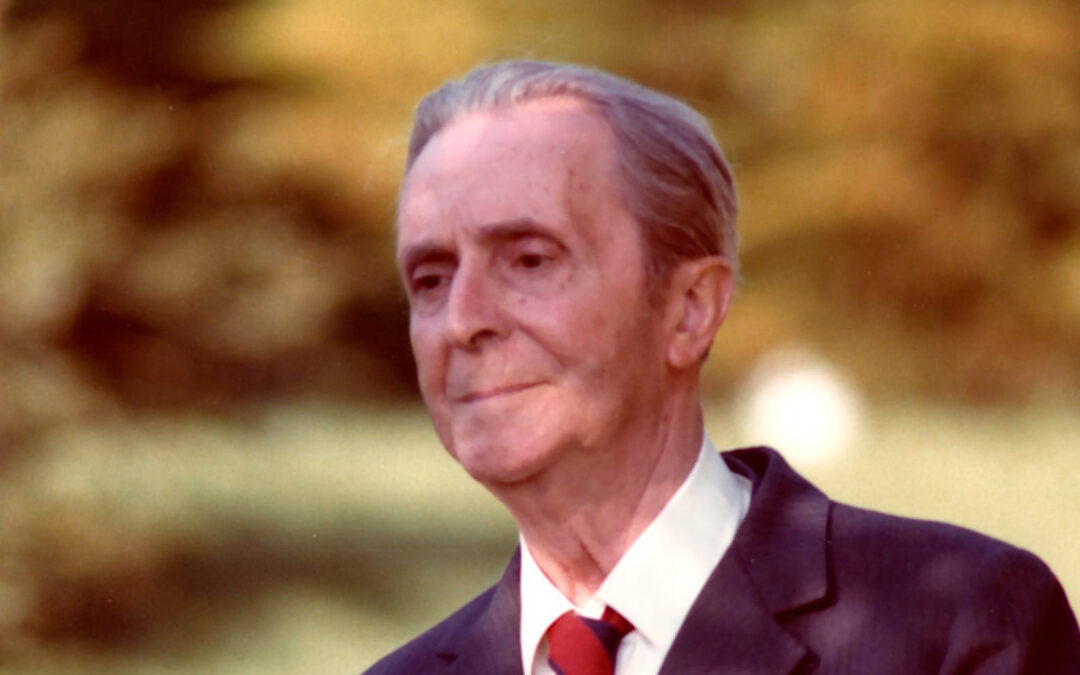
Wars, massacres and bloodshed, extreme polarizations, situations in which even pacifism can become divisive: this is the current situation in which we are immersed.
The figure of Igino Giordani (1894-1980), a man of peace because he was a just and coherent man, gives us some inspiration today to lift our gaze and continue to hope, attempting to foster a dialogue even where it seems impossible, to break down crystallised ideologies and absolutisms, to build an inclusive society and to rebuild peace on unity.
One of the most vivid witnesses of the culture of peace of the twentieth century, his pacifism draws directly from the Gospel: killing another man means murdering a being made in the image and likeness of God. Giordani therefore yearned for peace, spent himself in every possible way for it ways, engaged in dialogue with anyone in the name of peace, did not back down even when it came to lending his support to the ratification of the Atlantic Pact and ensuring the security and defence of Europe and Italy… We can say that his pacifism was comprehensive and spared no effort.
Let’s look at some of his writings.
“…World War I broke out […] And massive pro-war rallies took place in the streets, which I attended so as to protest against the war; so much so that once a person I respected, upon hearing my shouts, admonished me: ‘You’re asking to be killed!’…
[…] In the “radiant May” 1915, I was called to arms. […] […]
The trenches. It was there, that I left school and entered life, in the arms of death under the salvos of cannons. Mud, cold, filth, there I bitterly discovered that the soldiers were all opposed to the ‘murder’ called war, because murder meant the killing of a man: they all detested it… […] We were in Oslavia, near some ruins called Pri-Fabrisu: Later during a three-year hospital stay, I recalled the memory of the agony (from the Greek, “agon” meaning struggle) suffered in those places in a short poem entitled The faces of the dead. I remember the last verse that said: “This is curse of war” [2]».
Giordani was seriously injured and when he returned from the trenches, he spent three years in the military hospital in Milan, suffering irreversible damage to one leg. His pacifism was therefore grounded in life experience. Later, when he was engaged in political life, he always strove for dialogue with everyone, even with those whose views differed from his, firmly believing that every person should always be welcomed and understood. He never entrenched himself in absolute positions. This is how he described his speech in Parliament in favour of the Atlantic Pact:
“I remember a speech I gave in the Chamber on 16th March, 1949 […], about the Atlantic Pact, which had for too long been presented solely in its anti-communist aspect, that is, as a military build-up against the Russians […] I said that every war is a failure of Christians: “If the world were Christian, there would be no wars… […] War, I added, is murder, it is deicide (killing of God’s image, that is, of man who is made in his image) and it is suicide”
[3]».
Giordani’s speech was applauded by both the right and the left: a patient weaver of relationships, he highlighted the positive value of a choice by Italy that could have been interpreted as in favour of war. Giordani firmly believed that for peace to prevail, every possible path must be pursued, transcending strategic allegiances. He hoped that Christian politics would be capable of unravelling the existing polarizations to act in favour peace.
In 1953, he wrote:
“War is a large-scale murder, cloaked in a kind of sacred cult […]. It is to humanity, what disease is to health, what sin is to the soul: it is destruction and devastation, affecting both body and soul, individuals and communities.
[…] The end may be justice, freedom, honour, bread, but the means produce such destruction of bread, honour, freedom and justice, as well as human lives, including those of women, children, the elderly and innocents of all kinds, which tragically nullifies the very purpose for which they were intended.
In essence, war accomplishes nothing except to destroy lives and wealth
[4]».
Giordani therefore reminds us that peace is the result of a deliberate project: a project of fraternity among peoples, of solidarity with the most vulnerable, of mutual respect. This is how a more just world is built, today too.
Elena Merli
(Centro Igino Giordani)
Photo © Archivio CSC Audiovisivi
[1] Igino Giordani, L ‘inutilità della guerra, Città Nuova, Rome, 2003, (third edition), p. 57
[2] Igino Giordani, Memorie di un cristiano ingenuo, Città Nuova, Rome 1994, pp.47-51
[3] Idem, p.111
[4] Igino Giordani, L’inutilità della guerra, Città Nuova, Roma, 2003, (third edition), p. 3
Open up to Love
Be gentle
Accompany the suffering of others
Something new can be born from crisis
Go beyond prejudice
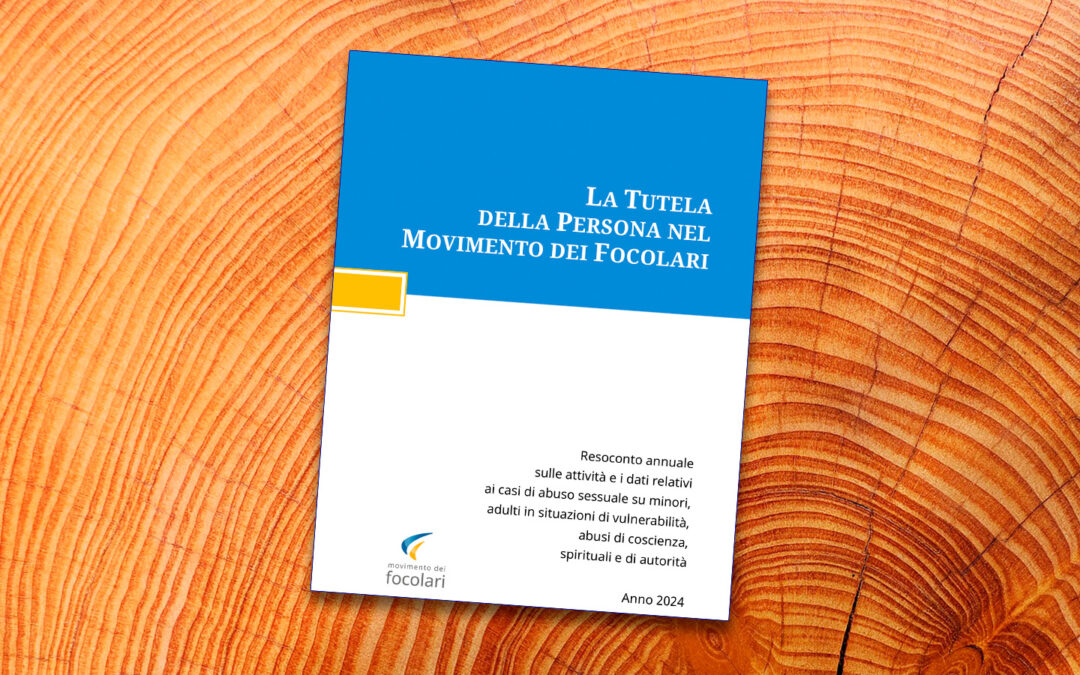
We are publishing the report of the year 2024 on the activities of the Focolare Movement concerning the Safeguarding of the Person, starting with the words that Pope Francis addressed to the Pontifical Commission for the Protection of Minors and with which in fact, he updated the mandate with which he had established it 10 years ago. We feel strongly called to fulfil this ‘integral conversion’ to which the Holy Father is calling us, which is never completely accomplished, but asks us to question ourselves continuously, to have for each person a humble, always attentive, protective and welcoming attitude. He asks us to continue with perseverance on the path of formation and authentic closeness, aware of the need for change, so that each person may feel safe, loved and respected in our environments and in our various activities.
2024: listening, formation, regulations
There were three elements that characterised the past year from the point of view of safeguarding in the Focolare Movement: listening and the involvement of victims and witnesses in various capacities in the process of reparation, and the formation of the people in positions of responsibility in the movement; the expansion of courses and formation events for all participants and to continue to establish the regulations, with the updating of the document for the “Procedures for handling cases of abuse” as well as the drafting of the Guidelines for Listening and Welcoming Services.
The meeting last November of those responsible for the Movement around the world, with some people who had been affected either by sexual abuse or abuse of authority, by members of the Focolare Movement, was of fundamental importance. People told their stories of great suffering and the serious consequences on their lives and on the communities that they were or still are a part of. Also present were some family members of one of the people abused who gave their testimony of the serious impact that abuse has on all members of the family. The words of one participant expressed clearly the importance of that moment: ” Listening to these people marked a before and an after. With delicacy and clarity, they expressed to us how much the Movement has failed in what is at the heart of its charism: unity and love of neighbour, because in many cases we have not only been co-responsible in some way, for the abuse committed, but we have also left people alone to cope with their suffering ”.
In addition, the contribution of the those who have suffered abuse together with the involvement of professionals in various disciplines, from outside the Movement, have been fundamental to the work done at the International Centre and in the local areas. This included the documents that have been produced, as well as for the formation in Safeguarding of the Focolare communities around the world, together with the planning and opening of some spaces for listening and welcoming.
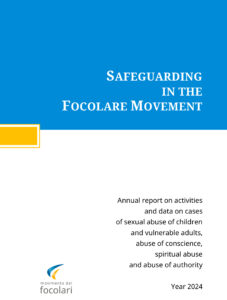
Read the report concerning Safeguarding 2024
Downloadable PDF in English.
A Study Commission has now been set up to look at the abuses of authority and spiritual abuses that have occurred within the Movement. The aim is to investigate their causes, so as to be able to change harmful practices and implement the necessary prevention. The study, which is still ongoing, also makes use of advice from specialists from outside the movement in various fields: psychological, pedagogical and legal. This project was supported and encouraged by the Dicastery for the Laity, Family and Life and, despite being in its early stages, its great importance is recognised. So it is clear that the creation and enacting of norms and Procedures is not enough, but the dynamics, leading to the various forms of abuse, must be investigated.
Finally, regulatory documents and guidelines have been updated, developed and produced (as illustrated below), which are also the result of a fruitful collaboration with the Pontifical Commission for the Protection of Minors, which has followed and promoted the new steps taken.
Stefania Tanesini
[1] Message of Pope Francis to the plenary assembly of the Pontifical Commission for the Protection of Minors, 25March 2025
Recognise the dignity of others
Unreserved welcome!